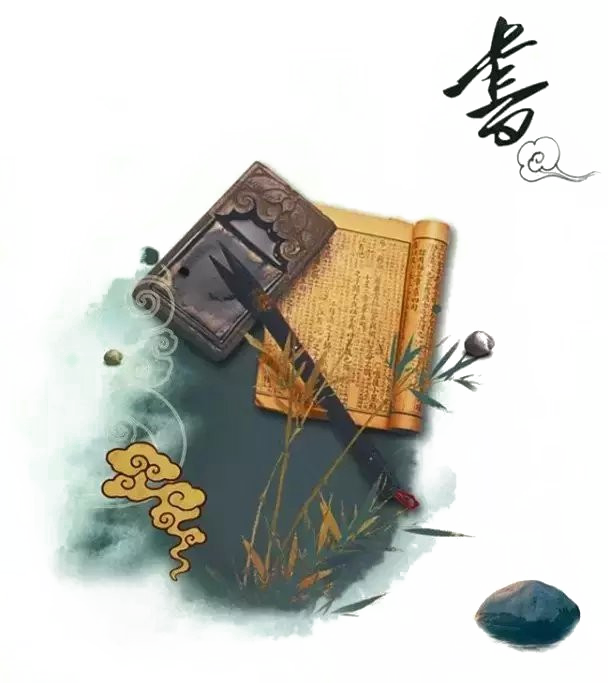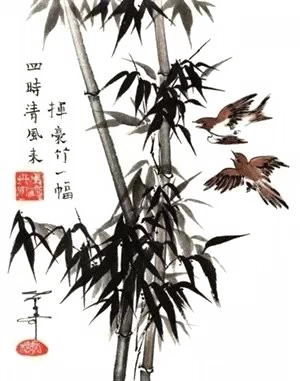

|
Dumpling
饺子 (jiǎo
zi)
Dumpling is a traditional
dish eaten on Chinese new year, especially
in North China. The shape of the dumpling
looks like silver ingot (money used in
ancient China), and the pronunciation of
dumpling (jiǎo zi) sounds the same as
'change of the year' which connect the new
year and the past old year together. So the dumpling has very
good meanings of propitious blessing and
good fortune. |
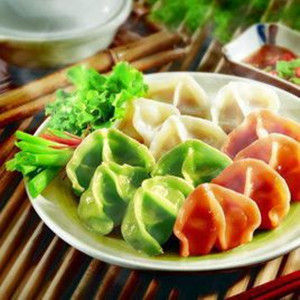 |
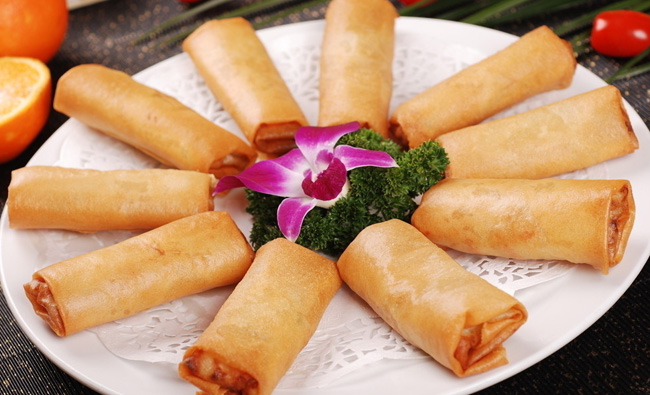 |
Spring
Roll 春卷 (chūn juǎn)
Spring roll is a
popular dish, especially in East China. It
is called Spring roll because it is
traditionally eaten during the Spring
Festival. The spring roll will have gold
color when fried which looks like a gold
bar. It has the meanings of welcoming the
arrival of spring, and a wish of wealth
and prosperity. |
| Nian Gao 年糕 (nián
gāo)
Nian Gao is a glutinous rice cake which
is usually eaten during Spring Festival,
especially in South China. The
pronunciation of Nian Gao means getting
higher year-after-year by year, and
promising of a better year which
includes the growth of the children, a
higher position and higher income.
|
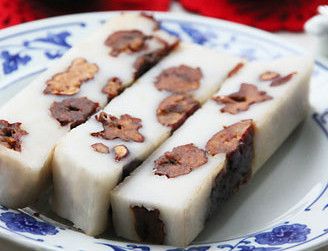 |
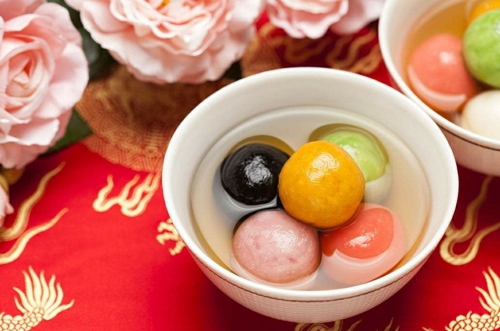 |
Yuan xiao 元宵 (yuán
xiāo)
Yuan xiao is also called
Tang yuan which is a round glutinous rice
flour ball with the sweet fillings. It is a
traditional dish
on the Lantern
Festival. Yuan
xiao sounds like
'tuan yuan' which
means reunion.
Together with its
round shape and
sticky feature,
Yuan xiao
symbolizes
union,
harmony and
happiness.
|
| Zong zi 粽子 (zòng
zi)
Zong zi is a traditional dish usually
eaten on Dragon Boat Festival to
commemorate the great ancient patriotic
poet Qu Yuan. It is made of glutinous rice
wrapped with bamboo or reed leaves. The
main cooking methods of Zong zi are
boiling and steaming.
|
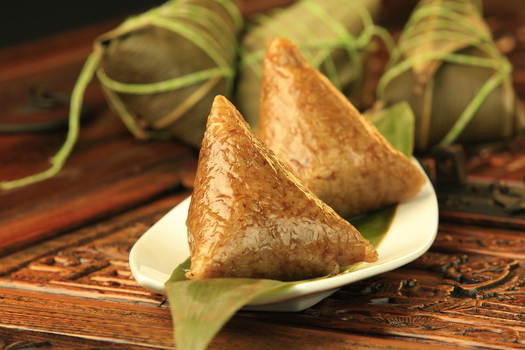 |
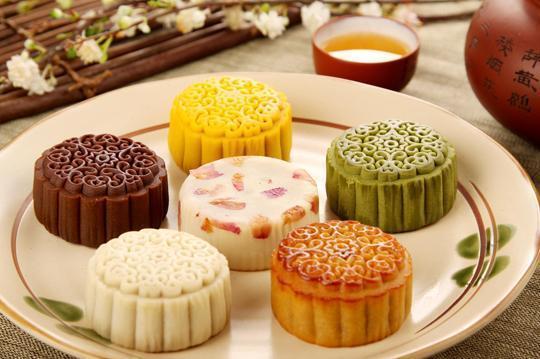 |
Chinese people traditionally enjoy Moon cake
on Mid-Autumn Festival with family members.
It is also called 'reunion cake' because
moon cake symbolizing family reunion. The
moons usually have pastry skin with various
decorative patterns and stuffed with
different flavors of fillings which vary
from place to place in China. |
